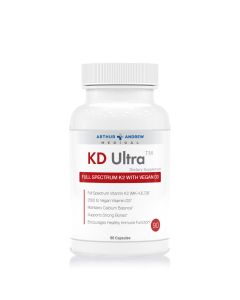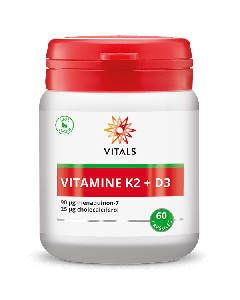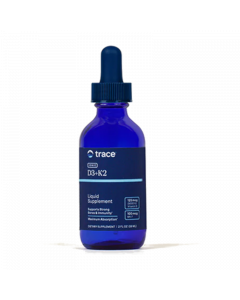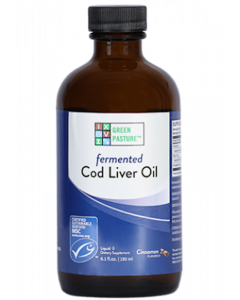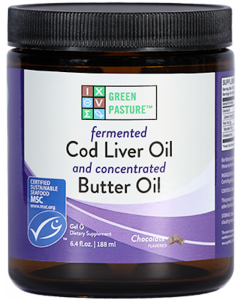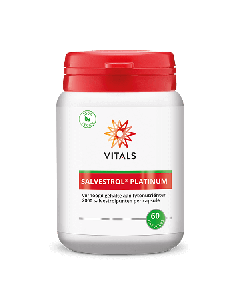-
 Vitals - Schildklierformule Pro - 60 capsules - OPRUIMINGShipped todaySpecial Price € 29.95 € 34.95
Vitals - Schildklierformule Pro - 60 capsules - OPRUIMINGShipped todaySpecial Price € 29.95 € 34.95 -
 Doctor's Best - Multi-Vitamin with Vitashine D3 and Quatrefolic, - 90 VCaps - CLEAR OUTShipped todaySpecial Price € 29.95 € 39.95
Doctor's Best - Multi-Vitamin with Vitashine D3 and Quatrefolic, - 90 VCaps - CLEAR OUTShipped todaySpecial Price € 29.95 € 39.95 -
 Nordic Naturals - Men's Multivitamin Extra Strength - 60 tabletsOut of stockSpecial Price € 39.95 € 44.95
Nordic Naturals - Men's Multivitamin Extra Strength - 60 tabletsOut of stockSpecial Price € 39.95 € 44.95 -
 Nordic Naturals - Women's Multivitamin - 60 tabl - CLEAROUTOut of stockSpecial Price € 36.95 € 44.95
Nordic Naturals - Women's Multivitamin - 60 tabl - CLEAROUTOut of stockSpecial Price € 36.95 € 44.95
- Shipped today!
- Free shipping from € 45
- Postpay possibility
- Review score 9.4
- Earn reward points
- Shipped today!
- Free shipping from € 45
- Postpay possibility
- Review score 9.4
- Earn reward points
- Home
- Vitamins & Supplements
- Vitamins
- Vitamin D


What is Vitamin D?
Winter is coming! Get prepared for the cold and dark days with our high-potency vitamin D! This is a powerful nutrient that we get from the sun and a small number of foods.
Coming into the winter months, it is especially important to ensure you are getting your daily needs vitamin D, as it has many roles in the body!
Vitamin D is an important nutrient that supports calcium absorption, tooth and bone health, immune, muscle and cell function.
Vitamin D contributes to:
- The normal function of the immune system
- The maintenance of normal bones and teeth
- The maintenance of normal muscle function
Is Vitamin D safe?
Vitamin D is also known as calciferol and it is a fat-soluble vitamin that comes primarily from the sun, but also some foods and is added to others. However, this form is not biologically active and our bodies need to convert it to the form we can use. This form is known as vitamin D3 (1,25-dihydroxy vitamin D) or calcitriol (Source: NIH). It is best to get a vitamin D3 supplement to ensure that it will be efficiently used in the body
When should you take Vitamin D?
Vitamin D is a fat-soluble vitamin that needs to be packaged with fatty acids to be absorbed. For this reason, you should always consume vitamin D with a source of fat to ensure efficient and rapid absorption.
Is Vitamin D safe?
Vitamin D is known as the sunshine vitamin because we absorb it from the sun. However, there are also some foods that contain small amounts of vitamin D such as fatty fish, fish oils, beef liver, dairy and egg yolks (Source: NIH). There are also fortified foods with added vitamin D such as cereals, milk, plant-based milk some yoghurts and juices.
Key Health Aspects of Vitamin D
Because vitamin C is an essential nutrient, we must obtain it via the diet. Its roles in the body are numerous. It is needed for the creation of collagen an essential component of connective tissue, and certain neurotransmitters. In addition, vitamin C can enhance the amount of iron absorbed from plant-based foods.
Vitamin D is one of the most-commonly under-consumed nutrients. This is important because it is crucial for a range of functions in the body. For this reason, there has been a myriad of studies conducted examining the impact of balancing vitamin D.
Bone Health
Vitamin D facilitates the absorption of both calcium and phosphorous by bones, which ensures that bone turnover does not exceed buildup (remodelling). When this happens our bone strength diminishes and they get weaker. This can eventually increase the risk of osteoarthritis and osteoporosis. In addition to bone, because calcium is also important for tooth mineralization.
Immune Function
Every cell in our body contains the receptor for vitamin D! Yep, you heard that right. This includes the immune cells and in fact, the sunshine vitamin has been shown to support an optimal-functioning immune system. So much so, that it has been approved as an official health claim.
Muscle Function
Outside of bone, teeth and immune function, vitamin D is also believed to play a role in supporting muscle function. This was first discovered in studies that linked muscle wasting (myopathy) to vitamin D deficiency (Source: NCBI). The cellular mechanisms are not well defined, however, it is believed to be linked to the vitamin D receptors in skeletal muscle tissue.





